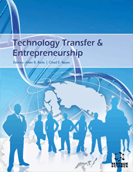Abstract
Technology transfers can be in the form of a patent or proprietary exchange, a publication in a journal, or training in one country and then taking that knowledge to another country. The dynamics between a Ph.D. student and his/her advisor and between a postdoctoral scientist and his/her advisor should lead all in the science fields to decades of productive scientific work because having great Ph.D./postdoctoral advisors leads to learning and developing trustworthy collaborations. Therefore, the human dynamics are stressed in this article, as technology transfers do not occur in a vacuum, and there is no such thing as a linear career path. This means, the article contains positive as well as negative issues regarding the human dynamics found within the sciences, though, the article is more positive than negative. Just as it would be misleading if all clinical trials omit negative results, it would be a disservice to include only positive information in this article. In addition, there already is an overabundance of academic and commercial positive-only science information (i.e., marketing material), and to add to that pile would be of no value. The format of this article is also not to show which direction is statistically significant, as scientific paths are diverse and many are yet to be created. Additionally, science is more about personalities—the human side—than statistical significance. The arguments within are universally known, but practical guidance is lacking and without an analytic framework to create the guidance, few write about this area of science because it seems too risky to pursue. Nor is the article a trial-and-error process of implementing intuition in selecting a Ph.D./postdoctoral advisor. It is, however, a structured process of science market realities. As the article focuses on Ph.D. and postdoctoral advisors, given the title, it does not cover educational choices someone with a Ph.D. in the science can further pursue. The article is subdivided into six doctoral advisor and six postdoctoral advisor guidelines that are not time sensitive, not specific to one scientific field, and not dependent on current technology. In turn, the article focuses on definable advisor guidelines that a Ph.D. student and a postdoctoral scientist can pursue based on their goals applicable to any scientific field that will influence scientific productivity—however one defines productivity—and thus technology transfer deals for decades.
Keywords: Advisor, career, Ph.D., postdoctoral, Science, science training, technology transfer.
 21
21

